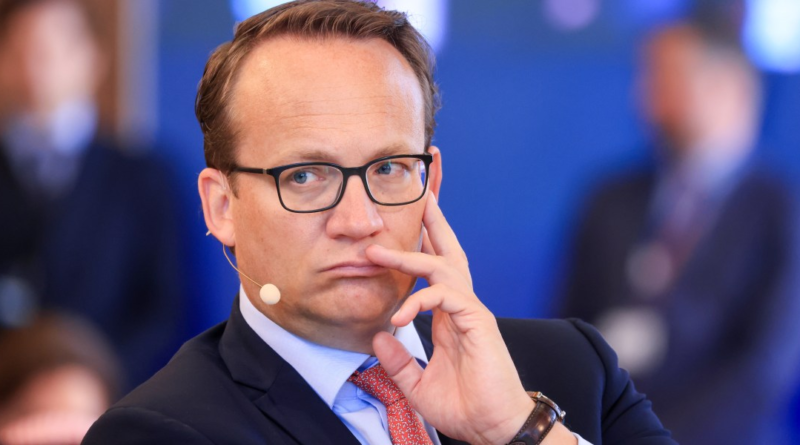German industry permanently damaged from energy crisis, RWE boss says
German industry got rich thanks partly to its close energy trading relationship with its political and economic rival Russia. The past few years have shown just how misguided that relationship was, as Russia invaded Ukraine and cut off Germany’s cheap, vital gas supply.
Now, one of Germany’s leading renewable power bosses has suggested it’s a mistake the country could rue forever, as the fallout from the energy crisis is set to permanently damage its industry.
Speaking to the Financial Times, RWE boss Markus Krebber said gas prices in Germany were structurally higher than elsewhere in Europe thanks to the country’s reliance on liquified natural gas imports.
Germany imported 55% of its natural gas supply from Russia when the country invaded Ukraine in February 2022. Russia was also Germany’s primary source of oil and coal imports.
The country has managed to shed most of its reliance on Russian gas. Germany cut its gas imports by 32.6% in 2023, the country’s energy regulator said, mostly as a result of cutting out Russian supply.
However, Germany is still heavily dependent on other countries for its energy supply, creating pricing issues for the embattled economy. The effects on German industry have been pronounced and, according to the RWE chief, are likely to be long-lasting.
“You’re going to see a bit of recovery, but I think we’re going to see a significant structural demand destruction in the energy-intensive industries,” Krebber told the FT.
German industry declines
Since Russia’s invasion of Ukraine, Germany has found itself in the unusual position of becoming the major laggard of Europe’s stuttering economic engine.
The country is on the brink of a technical recession after its economy contracted 0.3% in 2023. The outlook for this year is bleak, with the German government slashing its GDP growth forecast from 1.3% to 0.2% in 2024.
The former driver of its economic powerhouse, energy-intensive industry, has been sputtering since Russia’s invasion and has turned into a serious thorn in the country’s side.
Germany’s Purchasing Managers Index (PMI) for its construction sector has been declining since early 2022. Manufacturing, meanwhile, has been in decline since mid-2023.
“Germany’s manufacturing sector has been mired in recession since around the middle of last year, and the latest PMI readings signal another contraction in the first quarter of 2024,” Dr. Cyrus de la Rubia, chief economist at Hamburg Commercial Bank, wrote.
“To make things worse, the downturn is very broadly based, encompassing capital goods as well as intermediate and consumer goods.”
It has ignited debates around whether Germany can once again be considered the “sick man of Europe,” having previously shaken off its post-Cold War title in the 1990s.
Deutsche Bank CEO Christian Sewing warned in September that Germany could become the sick man of Europe, citing spiraling energy costs and a shortage of skilled workers as some of the obstacles facing the country’s economy.
The boss of Germany’s central bank, Bundesbank, was forced to hit back at this unfortunate moniker, arguing that Europe as a whole was at risk of “getting sick,” rather than Germany in particular.
German businesses taking flight
RWE is one of several German businesses that appear to have had enough of Germany’s flatlining industry.
Analysis by fDi Markets shows German companies almost tripled their investments in the U.S. in 2023 to $15.7 billion.
The downturn of German industry was as much to blame for the flight of capital to the States and Joe Biden’s Inflation Reduction Act (IRA), which offered strong subsidies to incoming businesses.
Major carmakers like Volkswagen and Mercedes-Benz upped their commitments in the U.S.
RWE, meanwhile, announced a new U.S. arm called RWE Clean Energy after closing an acquisition for Con Edison Clean Energy Businesses. The group has set aside $15 billion to invest in its U.S. business.
“You have a coherent and comprehensive policy in the US to incentivize getting manufacturing back into the country,” RWE’s Krebber told the FT.
“Europe has the same intention, but not yet the right measures.”




